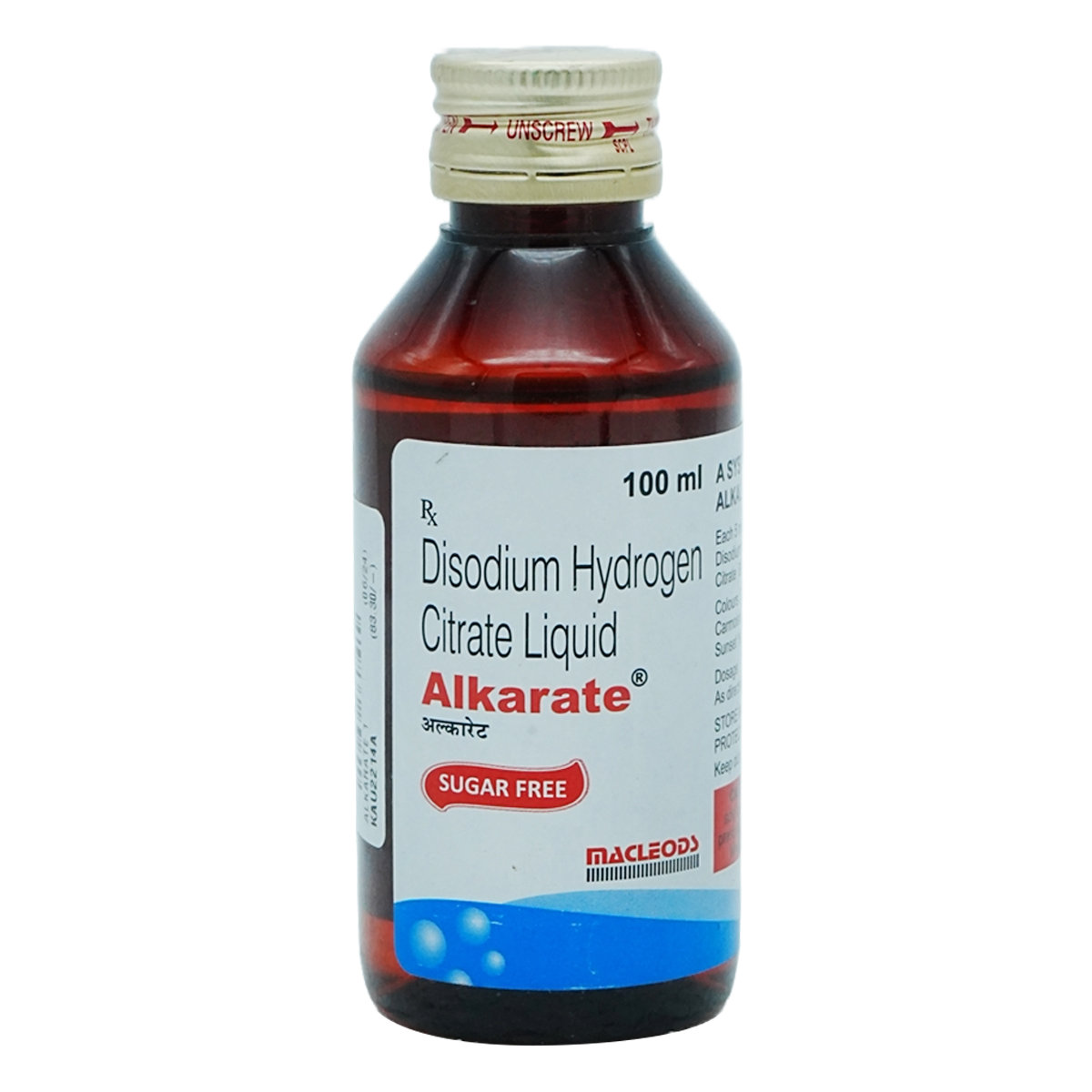- Home
- Disonim Syrup
Disonim Syrup Substitute
Disonim Syrup Substitute
Medicine Composition:
DISODIUM HYDROGEN CITRATE-1.37GMAll Substitutes & Brand Comparisons
RX
Out of StockAlkaday 1.37gm Syrup
₹52
(₹0.47/ 1ml)
9% CHEAPERRX
Dicitra Syrup 100 ml
Olcare Laboratories Pvt Ltd
₹61
(₹0.55/ 1ml)
5% COSTLIERRX
Out of StockDisomet 1.37gm Syrup
₹62
(₹0.56/ 1ml)
7% COSTLIERRX
Out of StockAlkazen 1.37gm Syrup
₹68
(₹0.61/ 1ml)
17% COSTLIERRX
Out of StockAlkolin Syrup
₹75
(₹0.68/ 1ml)
30% COSTLIERRX
Alkin Syrup 200 ml
Hema Laboratories Ltd
₹155.5
(₹0.7/ 1ml)
34% COSTLIERRX
Out of StockAlkavik 1.37gm Syrup
Norvick Lifesciences Ltd
₹82
(₹0.74/ 1ml)
42% COSTLIERRX
Out of StockAlkawik 1.37gm Syrup
₹87
(₹0.78/ 1ml)
50% COSTLIERRX
Oricitral Lemon Syrup 100 ml
TTK Healthcare Ltd
₹97
(₹0.87/ 1ml)
67% COSTLIERRX
Alkarate Syrup 100 ml
Macleods Pharmaceuticals Ltd
₹103
(₹0.93/ 1ml)
78% COSTLIERRX
Alkabel Syrup 100 ml
Blubell Pharma
₹103
(₹0.93/ 1ml)
78% COSTLIERRX
Citrahil Syrup 100 ml
Heal (India) Laboratories Pvt Ltd
₹105.5
(₹0.95/ 1ml)
82% COSTLIERRX
Alkazone Syrup 100 ml
Balaji Pharma
₹112.5
(₹1.01/ 1ml)
94% COSTLIERRX
ALKAMED SYRUP 100ML
Medok Lifesciences
₹113
(₹1.02/ 1ml)
96% COSTLIERRX
Out of StockAlked Syrup Sugar Free
₹130
(₹1.17/ 1ml)
124% COSTLIER

When Should You Consider Switching from Disonim Syrup?
Patients may explore substitutes in the following scenarios:
- High monthly cost of Disonim Syrup
- Non-availability in local pharmacies
- Generic recommendation by a doctor
- Side effects or better tolerability with alternatives
What to Know Before Switching
Before you switch from Disonim Syrup to another medicine, here are some important points to keep in mind:
Same salt, different brands:
Most substitutes contain the same active ingredient - DISODIUM HYDROGEN CITRATE-1.37GM, but the fillers, coating, or manufacturing quality may vary slightly.
Consult your doctor first:
Even if the salt is the same, your doctor can confirm if the substitute is right for your condition, dosage, and health history.
Watch out for allergies or reactions:
Some people may react differently to certain brands due to inactive ingredients. If you notice any side effects, inform your doctor immediately.
Price ≠ effectiveness:
A lower-priced substitute doesn't mean it's less effective. Many generic medicines work just as well as branded ones.
Check the dosage form and strength:
Always match the substitute’s strength (e.g., 5mg, 10mg) and form (tablet, capsule, syrup) with what your doctor prescribed.
Uses
Disonim Syrup is used in the treatment of Renal tubular acidosis and kidney stones. The detailed uses of Disonim Syrup are as follows:
- Urinary Tract Infections (UTIs): Disonim Syrup reduces burning sensation and discomfort during urination by neutralizing acidic urine.
- Kidney Stones: Disonim Syrup helps dissolve certain types of stones and prevents new ones from forming.
- Gout: Disonim Syrup lowers uric acid levels in urine, reducing the risk of crystal formation.
- Metabolic Acidosis: Disonim Syrup restores acid-base balance in the body.
- Painful Urination (Dysuria): Disonim Syrup alleviates irritation caused by acidic urine.
Medicinal Benefits
- Disonim Syrup is a urinary alkalizer indicated for the treatment of renal tubular acidosis, gout and kidney stones.
- Disonim Syrup contains disodium hydrogen citrate, which metabolizes to bicarbonate and increases the excretion of free bicarbonate ions; this increases the solubility of cysteine in the urine and ionizes uric acid to soluble urate ion.
- This helps in increasing the urinary pH, thereby making the urine less acidic. Disonim Syrup may also help to treat urinary tract infections.
FAQs
The substitutes of Disonim Syrup contain the same active salt(s) - DISODIUM HYDROGEN CITRATE-1.37GM. However, they may differ in price, manufacturing quality, and inactive ingredients. Speak to your doctor to find a suitable option.
Switching to a generic substitute medicine in the place of Disonim Syrup is often possible if it has the same salt, strength, and dosage form. But always check with your doctor before making any changes to your medication.
Generics versions of Disonim Syrup are typically more affordable because they don’t include the original brand's research, development, and marketing costs. They contain the same active ingredient and are approved for safety and effectiveness.
Most people don’t notice any difference. However, some may react to different fillers or coatings. If you notice any unusual symptoms after switching, consult your doctor.
Make sure the new medicine has the same active salt, strength, dosage form. Always confirm the change with your doctor or pharmacist.
Substitutes of Disonim Syrup meet the same safety and efficacy standards as Disonim Syrup, but small differences in absorption or formulation can exist. A doctor can help you choose the right one for your needs.
Yes. Substitutes of Disonim Syrup may vary in color, size, or shape due to differences in manufacturing and branding, but this does not affect how they work.
Yes, it’s generally safe to switch between multiple substitutes of Disonim Syrup if they have the same salt and strength. However, always inform your doctor so they can monitor how your body responds.
Yes, many people safely use substitutes of Disonim Syrup for long-term treatment. Just ensure it’s done under medical supervision.
If your symptoms stay under control or lab results remain stable, the substitute for Disonim Syrup is likely working well. Regular follow-ups with your doctor are important.
Absolutely. Even with the same salt, small differences can affect how your body responds when switching from Disonim Syrup to its substitute. Always consult your doctor before switching.
Disonim Syrup is used to treat renal tubular acidosis and kidney stones.
Disonim Syrup raises the urinary pH, thereby makes the urine less acidic. This helps the kidneys to get rid of excess uric acid, and prevents gout and the formation of kidney stones.
Consult your doctor before taking corticosteroids with Disonim Syrup as it might increase the blood sodium levels.
Disonim Syrup contains sodium; therefore, talk to your doctor before taking Disonim Syrup if you are on a sodium-restricted diet or if you have high blood pressure.
To treat your condition effectually, continue taking Disonim Syrup for as long as suggested. Do not be reluctant to speak with your doctor if you experience any difficulty while taking Disonim Syrup.
Diarrhea might be a side-effect of Disonim Syrup. Drink lots of fluids and eat non-spicy food if you experience diarrhea. If you find blood in stools (tarry stools) or if you have severe diarrhea, consult your doctor. Do not take anti-diarrheal medicine on your own.
Consult a doctor before taking Disonim Syrup if you have an active urinary tract infection, as Disonim Syrup increases the urinary pH, which might promote further bacterial growth.
Limited information is available regarding the usage of Disonim Syrup in children. Please consult a doctor.
Depending on your medical condition, you are advised to take Disonim Syrup for as long as your doctor has suggested it for you. If you face any difficulty or experience any side effects that persist while taking this, seek medical attention.
Disonim Syrup taken within few minutes to start working and its effect lasts for around four to six hours.
Disonim Syrup taken within few minutes to start working and its effect lasts for around four to six hours.
No, Disonim Syrup is not an antibiotic medication. Disonim Syrup is a urinary alkalizer indicated for the treatment of renal tubular acidosis, gout and kidney stones.
Disonim Syrup may interact with certain antibiotic medications. So, do not combine any antibiotic medication unless recommended by the doctor.
Yes, Disonim Syrup may also help to treat urinary tract infections. However, consult your doctor to proper diagnosis and appropriate treatment.
The suggested dose of Disonim Syrup should be diluted with a glass of water and taken after meals. Depending on your medical condition, your doctor will decide how long you must take Disonim Syrup. Note: Adults may take it without dilution, followed by liquid, if preferred.
Take Disonim Syrup only as suggested by the physician. Avoid exceeding the recommended dose as it could lead to an overdose. Symptoms of overdose may include electrolyte disturbances, nausea, vomiting, diarrhea, oedema, hypernoia (excessive mental activity), and convulsions. If you experience these symptoms or suspect you have taken an overdose, seek immediate medical attention.
Common side effects of Disonim Syrup may include abdominal discomfort, diarrhea, tiredness, nausea, and vomiting. Most of these side effects do not require medical attention and will resolve gradually over time. However, you are advised to talk to your doctor if you experience these side effects persistently.
Take the missed dose as soon as you remember, unless it's almost time for your next dose. In this case, skip the missed dose and take your next dose at the regular time. Never take a double dose to make up for a missed one.
Buy best Genito Urinary products by
Cipla Ltd
Sun Pharmaceutical Industries Ltd
Intas Pharmaceuticals Ltd
Leeford Healthcare Ltd
Ipca Laboratories Ltd
Dr Reddy's Laboratories Ltd
Lupin Ltd
Alkem Laboratories Ltd
Mankind Pharma Pvt Ltd
Demorbus India Pvt Ltd
Corona Remedies Pvt Ltd
Zydus Healthcare Ltd
Msn Laboratories Pvt Ltd
Overseas Health Care Pvt Ltd
RPG Life Sciences Ltd
La Renon Healthcare Pvt Ltd
Samarth Life Sciences Pvt Ltd
Ignyx Pharmaceuticals
Alembic Pharmaceuticals Ltd
Macleods Pharmaceuticals Ltd
Micro Labs Ltd
Fourrts India Laboratories Pvt Ltd
Tppl Pharmaceuticals Pvt Ltd
Aristo Pharmaceuticals Pvt Ltd
Emcure Pharmaceuticals Ltd
Hetero Drugs Ltd
Tas Med India Pvt Ltd
Zydus Cadila
Medrhans Pharmaceuticals Pvt Ltd
Golden Square Lab Pvt Ltd
Meditrex Pharma
Renspur Healthcare Pvt Ltd
Alniche Life Sciences Pvt Ltd
Knoll Healthcare Pvt Ltd
Lividus Pharmaceuticals Pvt Ltd
Merynova Life Sciences India Pvt Ltd
Zycris Healthcare
Ajanta Pharma Ltd
Elder Pharmaceuticals Ltd
Septalyst Lifesciences Pvt Ltd
Talohsty Medmark Pvt Ltd
Delvin Formulations (P) Ltd
Morepen Laboratories Ltd
Nephurocare Pharma Pvt Ltd
Neuten HealthCare
Prevego Healthcare & Research Pvt Ltd
Stadmed Pvt Ltd
Steris Healthcare
Walron Health Care Pvt Ltd
Walter Bushnell
Aar Ess Remedies Pvt Ltd
Amps Biotech Biotech Pvt Ltd
Calren Care Lifesciences Pvt Ltd
East West Pharma India Pvt Ltd
Globus Remedies Ltd
Himeros Pharmaceuticals Pvt Ltd
Intra Life Pvt Ltd
Kiosence Health Care Pvt Ltd
Pfizer Ltd
Redmed Medical Services
Tripada Healthcare Pvt Ltd
Biokindle Lifesciences Pvt Ltd
Euniche Life Sciences
Hetero Healthcare Pvt Ltd
Indoco Remedies Ltd
Modi Mundipharma Pvt Ltd
Ppp Pharmaceuticals
Primus Remedies Pvt Ltd
Qren Life Sciences Pvt Ltd
Redmax Pharma
TTK Healthcare Ltd
Votary Laboratories (India) Ltd
Albus Healthcare Pvt Ltd
Alteus Biogenics Pvt Ltd
Fibovil Pharmaceuticals Pvt Ltd
MISAE LIFE SCIENCES
Megma Healthcare Pvt Ltd
Olcare Laboratories Pvt Ltd
Oxygen Pharma Care Pvt Ltd
Rencord Life Sciences Pvt Ltd
Unipark Biotech Pvt Ltd
Wellshark Pharmaceuticals Pvt Ltd
Zenith Formulations
Zenska Life Sciences Pvt Ltd
Abbott India Ltd
Adelmo Healthcare
Akumentis Healthcare Ltd
Ameya Pharmaceuticals & Chemicals Pvt Ltd
Chemo Biological Ltd
Chemo Healthcare Pvt Ltd
EVERVITAL LIFESCIENCES
Elio Bio Care Lifesciences Pvt Ltd
Fidus Healthcare Llp
Hospimax Healthcare Pvt Ltd
Jagsam Pharma
Koye Pharmaceuticals Pvt Ltd
Lia Life Sciences Pvt Ltd
Maaah Pharmaceuticals Pvt Ltd
Miotic Pharma
Neovae Biomedics Pvt Ltd





